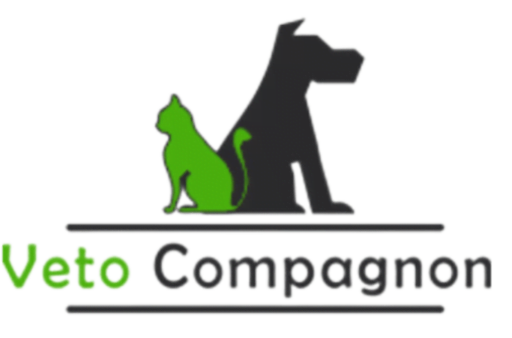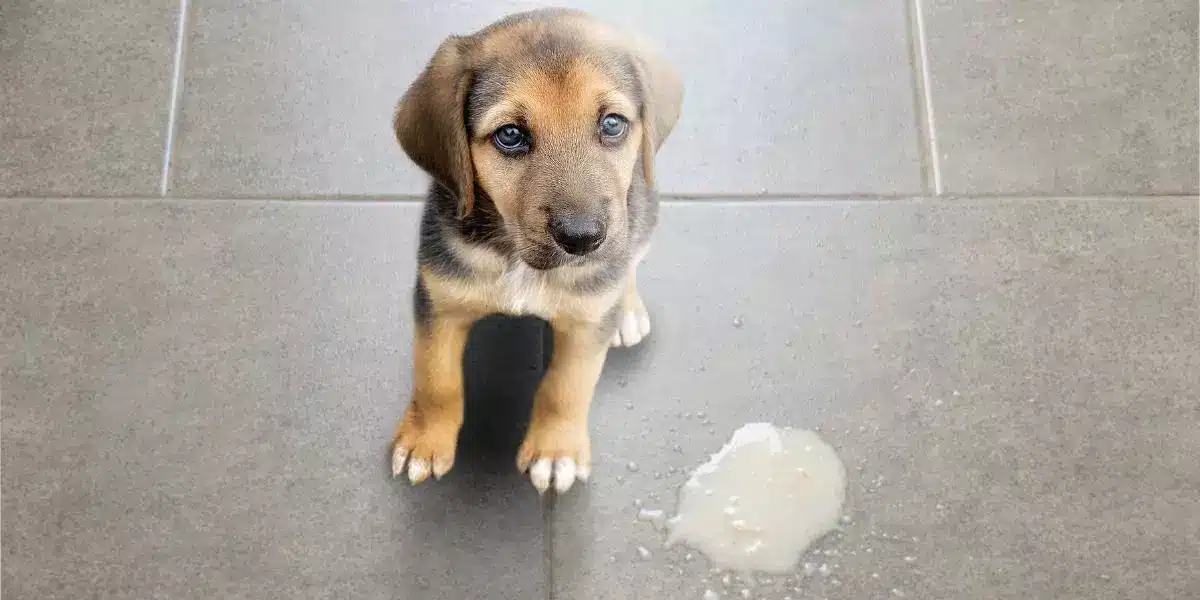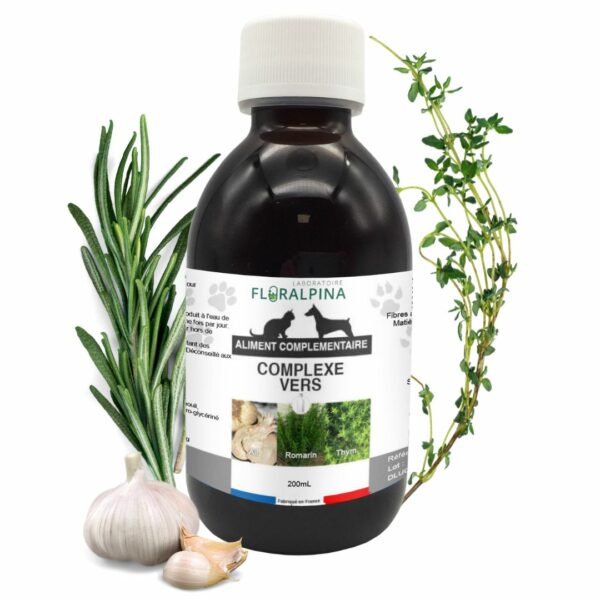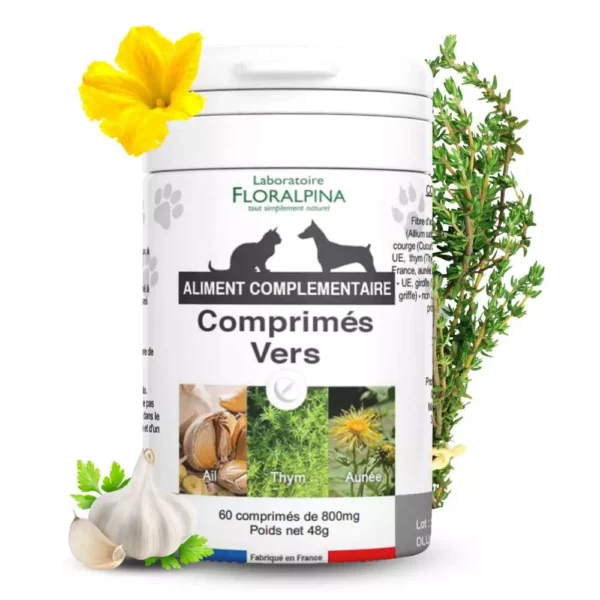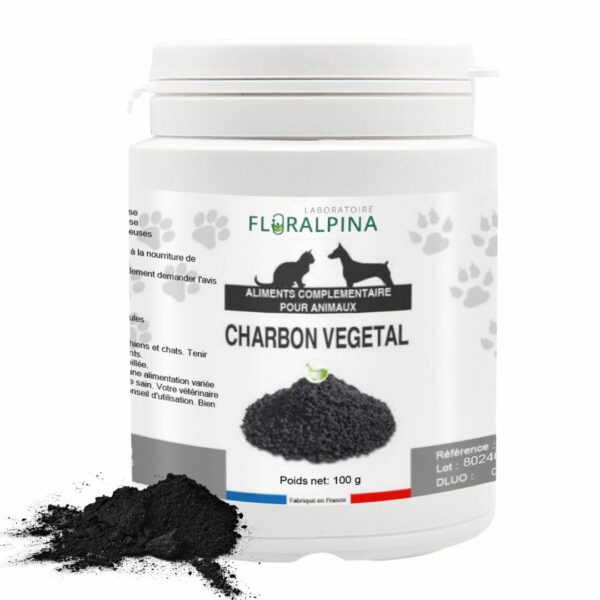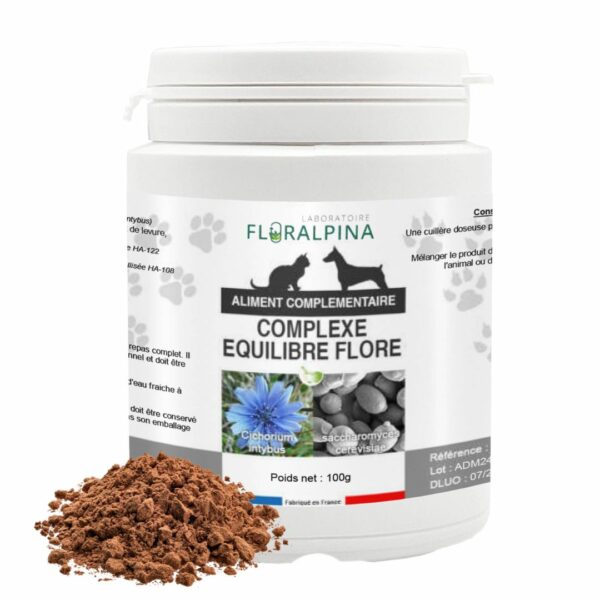Did your dog vomit yellow fluid? Don't panic, this symptom isn't necessarily alarming. However, it should not be overlooked as it may reveal an underlying health problem.
At Veto Companion, we know how worrying it is to see his pet vomit, especially when vomiting is coloured. But rest assured, in most cases, there are natural solutions to quickly relieve your dog and avoid the recurrence of yellow vomiting.
In this article, we will explain to you where these yellowish vomiting, what are the risks if they persist, and above all, give you our advice to effectively address them. Our goal is to enlighten you and help you make the right decisions for the well-being of your faithful companion.
Table of Contents
ToggleMy dog vomits yellow, what are the causes?
Yellowish vomiting in our four-legged friends can have various origins that it is important to know. Indeed, identifying the underlying cause is essential to be able to provide the proper care for your animal and remove these unpleasant symptoms. Some causes are benign and easy to treat, but others require the intervention of a veterinarian.
Digestive problems
Digestive problems are a common cause of yellow vomiting in dogs. Indeed, food intolerance to certain ingredients may cause bile vomiting, Gastric fluid greenish yellow colour.
One gastritis, often due to a inadequate or too fat diet, may also lead to yellowish regurgitation.
Finally, indigestion after a meal too large or too rich will cause yellow vomiting evacuating surplus food.
However, with some maintenance adjustments and natural care, digestive problems causing yellow vomiting usually resolve well.
If your dog also has diarrhea, you can consult this article on Natural remedies for dog diarrhea
Liver problems
The liver disorders are another common cause of yellow vomiting in dogs.
For example, Hepatitis,inflammation of the liver, may cause bile vomiting related to biliary channel obstruction.
The cholangitis,inflammation of the biliary tract, also generates yellowish vomiting.
In case of suspicions of liver problems, do not hesitate to make a blood check with your veterinarian. It may prescribe appropriate treatment. Complete with Hepatoprotective plants like the dogdent or the veronics in herbal therapy. Your dog's liver will regain its full function.
Pancreatic insufficiency
If your dog vomit yellow, it may be because of a pancreatic insufficiency. Indeed, the pancreas plays an essential role in the digestion, by producing digestive enzymes and pancreatic juices. When the pancreas is weakened, these secretions are reduced, causing poor digestion and evacuation of the pancreas. yellow bile.
Repeated yellow vomiting may be a sign of pancreatic insufficiency exocrine, often linked to inflammation of the pancreas. For support the pancreas, plants as the hail, the millet or the eupatory will bring enzymes and substances favoring the good pancreatic functioning. Together with a gentle diet, herbal therapy will effectively relieve a tired pancreas.
The intestinal parasites
The intestinal parasites may also cause your dog's yellow vomiting. The presence of To (ascaris, ankylostomes, etc.) or protozoa (giardia) inintestine causes irritation of the intestinal mucosa. This leads to yellow bile vomitingand the diarrhoea.
It is essential to treat rapidly parasitic infestation, This is why at Veto Companion we developed our natural plant-based deworming. Our product contains garlic, known as a natural repellent of intestinal worms in dogs and cats.
One probiotic treatment will also allow rebalance intestinal flora, weakened by parasites. Thus, your dog's intestine will be effectively rid of these undesirables!
Bile path obstruction
The obstruction of the biliary tract is a more rare but serious cause of yellow vomiting in dogs. Lobstruction prevents bile from flowing from the liver and gallbladder to the intestine. The bile then stagnates and ends up being regurgitated as yellowish and nauseating vomiting. The reasons for this obstruction may be gallstones1 inflammation, tumours... only thorough veterinary examinations will identify the exact origin.
Treatment relies primarily on surgery to open the obstructed channels. Natural solutions based on Cholagogue plants as artichoke or black radish can help to fluidize the bile in support.
My dog vomits yellow, is it dangerous?
Although yellow vomiting be above all an embarrassing symptom, it is important to keep in mind that if they persist, they may also represent a risk for the health of your animal. Indeed, these colorful vomiting, when they are recurrent, can cause: dehydration and nutritional deficiencies.
Dehydration
If your dog is forced to vomit repeatedly, there is a great chance that it will end up dehydrate. The loss of water and electrolytes caused by dog vomit will harm the good functioning of its body. The skin animal will be less elastic, he will have more trouble salivating and he will be tired More often.
If you notice these signs, you must help your dog rehydrate. To do this, we advise you to give it small amounts of water frequently. Also watch his diet, it could be the cause of vomiting.
Dehydration weakens and endangers the dog. If his condition persists despite your efforts, go to a veterinarian to help you treat your dog.
Nutritional deficiency
The repeated vomiting lead to risk of nutritional deficiencies in dogs because they prevent proper assimilation of food. The most common deficiencies in frequent vomiting are protein deficiencies, vitamins (A, B, K) and minerals essential Like potassium. These nutritional deficits go weakening the dog, decrease its immune defences and to promote skin and fur problems. It is therefore essential to feed your dog with a diet that is easily digested and rich in nutrients. You can enrich his bowl with Food supplements adapted. Also monitor the weight, behaviour and condition of the coat. Optimal nutritional intake is essential to his health.
My dog vomits yellow, what can I do to help him?
For help your dog regain normal transit and stop these vomiting unpleasant, you must first have determined the cause of her vomiting. Indeed, the changes or treatments to be used will differ between a parasitic cause and a food cause for example.
Gradually changing power supply
Diet plays a key role in the digestive health of the dog. Poor quality croquettes or food intolerances can be the underlying cause of vomiting. If so, you must changing your diet for one that suits him better. However, make sure you make this change progressively. Here's why you should change the diet gradually:
-
- To minimize the risk of new digestive disorders : Sudden food change can disrupt the dog's digestive system and worsen vomiting or cause diarrhea.
-
- To give his body time to adapt : A gradual transition allows the dog's metabolism to adjust smoothly to the new diet.
-
- To facilitate identification of possible food intolerances : Stepwise, it is easier to determine if some ingredients are problematic.
-
- To encourage better acceptance of new food : Some dogs may refuse to eat if the change is too radical.
-
- To minimize the risk of nutritional deficiencies : The transition avoids deficiencies that may occur with a sudden change in diet.
Here is an example of a procedure you can set up to gradually change the diet of a dog suffering from bile vomiting:
For 3 days:
-
- Give 75% of its current diet
-
- Add 25% of the new feed selected
For 3 days:
-
- Increase to 50% of old
-
- 50% of new food
For another 3 days:
-
- Give 25% of old food
-
- 75% of new
Finally, after 10 days in total, you can switch to 100% of the new diet.
Make sure to mix the two foods well during the transition, keep the same total amount of food at each step, distribute meals as usual (2 to 3 per day), monitor the progression of vomiting. Do not hesitate to extend the transition if necessary. The aim is to give its body time to adapt smoothly. If in doubt, ask your veterinarian for advice.
Pest control deworming treatment
If Internal parasites have decided to settle in your dog's intestines, there is a great chance that your dog will be subject to digestive disorders and transit. To make up for this, it is important to get rid of the pests. To do this, we recommend using a deworming. At Veto Compagnon, we have developed 2 products that will allow naturally defrost your animal thanks to the benefits of plants. We have the tablet and liquid to. Among the ingredients that make up our natural vermisfuges are:
Complex liquid to
These plants are traditionally used against pests. They will act complementaryly against worms and other parasites. ✅Promotes the evacuation of internal parasites ✅Helps to regain digestive comfort Format : 200mL Dose pipette included
Tablets
This plant complex is traditionally used against pests. Strong natural vermifuge against parasites, worms, dog and cat. ✅Promotes the evacuation of internal parasites ✅Helps restore digestive comfort Format: tablets
-
- The tanaisie : powerful natural vermifuge, effective against round worms and ascaris.
-
- The fennel : Helps to expel tenias, ascaris and ankylostomes thanks to its anti-parasitic properties.
-
- The turmeric : intestinal anti-inflammatory, limiting the multiplication of parasites.
-
- The rosemary : stimulates digestion, relieves the intestines irritated by parasites.
-
- The thyme : recognized pest control properties, sanitizes the intestine.
-
- Garlic : natural antiseptic, kills microbes and parasites, stimulates intestinal transit.
-
- The squash : nourishing fibers, irritated bowel soothes, transit aid.
-
- Blood : determinate and anti-inflammatory intestinal effects.
-
- The cloves : Reputable intestinal disinfectant and antiparasitis.
Food supplements
Food supplements can be valuable allies in managing yellow vomiting in dogs. Of the options available, three stand out particularly: plant charcoal, probiotics and slow transit complex.
The active vegetable carbon is recognized for its power toabsorption of toxins and undesirable substances in the digestive system of the dog, which can help reduce vomiting by eliminating potential irritants.
Vegetable coal
Prepare your pet for the summer! Our activated charcoal is a natural and healthy way to help stimulate the digestion of pets. ✅Promotes intestinal transit ✅Absorbing toxins in the intestines Format: 100g Dosing spoon included
The probiotics, as for them, promote the balance of intestinal flora. They help maintain a healthy intestinal environment, which can reduce irritation and inflammation causing yellow vomiting.
Flore Balance Complex
Probiotic plant complex for your dog or cat. ✅Promotes digestion ✅Strengthens natural defences ✅Restores intestinal flora balance Size 100g Dosing spoon included
Finally, the slow transit complex, which is a product that we developed at Veto Compagnon, judiciously combines ingredients such as Dandelion root, ginger, the licorice andeleutherococcus to promote harmonious digestion. These components are carefully selected for sooth the digestive system, stimulate bile production, reduce intestinal gas and improving appetite. Used in addition to a balanced diet, this complex can play a crucial role in preventing yellow vomiting, thus giving your faithful companion the comfort and digestive health that it deserves.
F.A.Q. My dog vomits yellow
My dog eats grass and vomits yellow, what to do?
It is quite common that dogs eat grass and vomit afterwards. Although this may seem worrying, it does not necessarily mean that there is a serious problem. Here are some tips on how to manage this situation.
-
- Careful monitoring Keep an eye on your dog to ensure that it does not show other signs of serious illness, such as lethargy, loss of appetite, bloody diarrhea, or frequent and persistent vomiting.
-
- Understand the reason : Eating grass is a common habit in many dogs. It can do so for a variety of reasons, including to relieve gastrointestinal irritation or to induce vomiting when something is wrong in the stomach.
-
- Yellow growth : Yellow vomiting may indicate bile in gastric content. This can happen when your dog's stomach is empty and it vomits bile. This is not necessarily a sign of a serious problem, but it may indicate that your dog needs food in the stomach.
-
- Avoid punishment : Avoid reprimanding your dog for eating grass or vomiting. This will only create confusion and stress for your pet.
-
- Hydration : Make sure your dog has access to fresh water. Dehydration can be a problem if vomiting is common.
-
- Consult a veterinarian : If your dog continues to vomit frequently, if it seems sick or if you are concerned about its general state of health, it is best to consult a veterinarian. The animal health professional may conduct a full examination to exclude any underlying condition.
Why does my dog vomit yellow and stop eating?
The fact that a dog vomits yellow fluid and refuses to eat may indicate several potential health problems.
-
- Gastroenteritis : Gastroenteritis, an inflammation of the stomach and intestine, is one of the most common causes of yellow vomiting in dogs. It can be caused by bacterial, viral infection, food intolerance or the consumption of damaged foods.
-
- Intestinal obstruction : If your dog has ingested a foreign object, such as a toy or piece of tissue, it can cause intestinal obstruction. Yellow vomiting may occur due to inability of food to pass through the obstacle.
-
- Liver disease : Liver disease may result in dysfunction of bile production, which may cause yellow vomiting. Loss of appetite is also common in dogs with liver problems.
-
- Pancreatitis : Inflammation of the pancreas, called pancreatitis, may cause yellow vomiting and loss of appetite. It is a serious condition that requires immediate medical attention.
-
- Serious infections : Some serious infections, such as parvovirosis, may result in similar symptoms, including yellow vomiting and anorexia.
-
- Intoxication : Ingestion of toxic substances, such as household chemicals, toxic plants or medicines, can cause gastrointestinal symptoms, including yellow vomiting.
-
- Dental or oral problems : Dental problems, such as infections or dental pain, can make chewing painful, which can lead to loss of appetite and possibly vomiting.
-
- Stress or anxiety : Stress or anxiety can affect a dog's appetite and cause vomiting.
If your dog vomits yellow fluid and does not eat, it is essential to consult a veterinarian immediately. A professional may perform a physical examination, appropriate diagnostic tests, and recommend a treatment plan based on the underlying cause.
Dog that vomits sparkling yellow, is it dangerous?
If your dog vomit yellow sparklingimmediate consultation with a veterinarian is crucial. The veterinarian will conduct a full examination, may recommend appropriate diagnostic tests, and will determine the underlying cause of vomiting. Treatment will depend on the underlying condition, but in many cases early intervention can improve your dog's recovery prospects. Do not take these symptoms lightly and act quickly to ensure the health of your pet.

